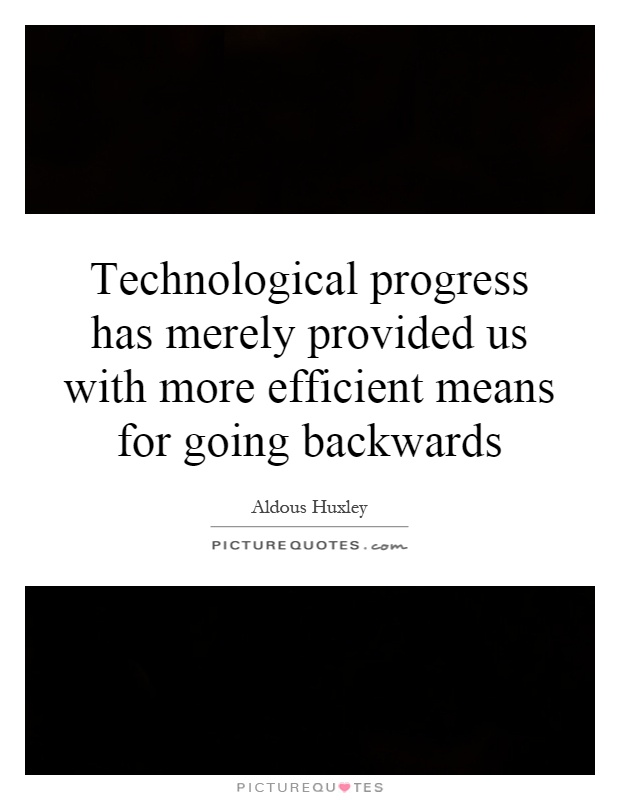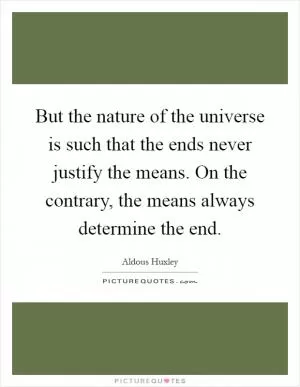Technological progress has merely provided us with more efficient means for going backwards

Technological progress has merely provided us with more efficient means for going backwards
Aldous Huxley, a renowned English writer and philosopher, is often remembered for his dystopian novel "Brave New World," which explores a future society where technological advancements have led to a dehumanized and controlled population. In this context, the quote "Technological progress has merely provided us with more efficient means for going backwards" takes on a profound significance.Huxley's warning about the dangers of technological progress leading to regression is particularly relevant in today's world. While advancements in technology have undoubtedly improved our lives in many ways, they have also brought about new challenges and ethical dilemmas. The rapid pace of technological innovation has often outpaced our ability to fully understand and control its consequences, leading to unintended negative outcomes.
One of the key themes in "Brave New World" is the dehumanizing effect of technology on society. In the novel, individuals are conditioned from birth to conform to a rigid social hierarchy, with technology used to control and manipulate their behavior. This raises important questions about the impact of technology on our personal freedoms and autonomy. As we become increasingly reliant on technology for communication, entertainment, and even decision-making, we risk losing touch with our own humanity and becoming mere cogs in a machine.
Moreover, Huxley's quote also speaks to the idea that technological progress does not necessarily equate to progress in a broader sense. While we may have more efficient means of accomplishing tasks and accessing information, this does not necessarily translate to a more just, equitable, or sustainable society. In fact, the relentless pursuit of technological advancement can sometimes lead us further away from our core values and principles.












 Friendship Quotes
Friendship Quotes Love Quotes
Love Quotes Life Quotes
Life Quotes Funny Quotes
Funny Quotes Motivational Quotes
Motivational Quotes Inspirational Quotes
Inspirational Quotes